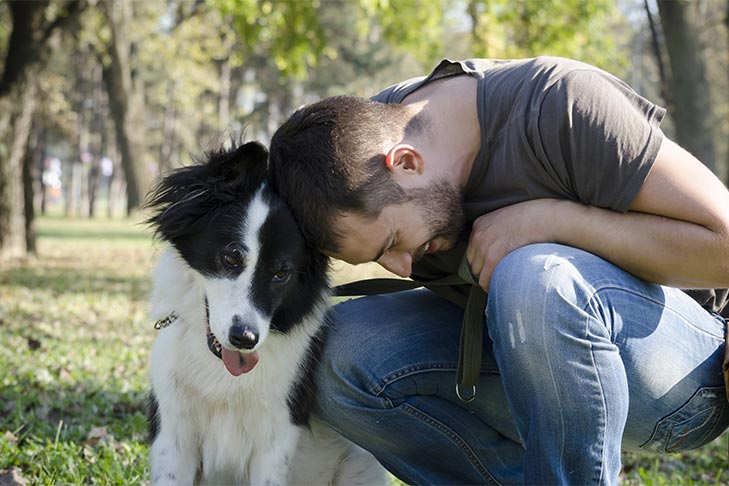
College can be an extremely stressful time for many students, and that stress can be a barrier to academic success. In addition, college students tend to face challenges to their emotional well-being, such as loneliness and depression. To help improve student mental health, some universities have started animal-assisted stress reduction programs, where animals and their handlers visit campuses.
Most of these programs involve dogs, and previous research has demonstrated that spending time with a canine companion can reduce stress and anxiety, as well as ease feelings of loneliness and depression. Dogs can also encourage social contact between people. But as popular as animal-assistance programs are becoming, not a lot is known about how effective they are.
Emma Ward-Griffin, from the University of British Columbia, and her colleagues decided to examine whether time with a therapy dog can really boost a student’s well-being. They enlisted 246 students to participate in the study, which included a drop-in therapy dog session where the students could pet, cuddle, and interact with 7-to-12 dogs.
The researchers used two approaches in their data collection. The first approach looked for instant benefits resulting from time with a therapy dog. The students completed a brief questionnaire immediately before having a single session with a dog. Immediately after the session, they completed the same questionnaire a second time.

The second approach looked for longer-lasting benefits. In this case, participants were also surveyed 10 hours later. However, only some of the participants in this portion of the study had a therapy dog session. The other participants did not spend any time with the dogs.
The dogs were found to have a strong immediate benefit for the students. They significantly increased happiness and energy levels and reduced stress right after the sessions. Although those feelings of happiness and life satisfaction didn’t last for 10 hours, other feelings did. In the longer-term approach, the students that participated in the therapy dog sessions reported a greater improvement in their experience of negative emotions, perceived stress levels, and perceived social support than those students who did not take part in a therapy dog session. These benefits were equal across both genders in the study.
So, it seems that a single, drop-in session with a therapy dog can have a large and instant effect on the well-being of university students. And, even hours later, there are still positive effects in terms of reducing stress and feelings of negativity. Because the biggest boost to mood seems to be short-lived, the researchers suggest that colleges offer therapy dog sessions during periods of increased student stress, such as exam time. Maybe one day, cuddling a dog will be considered just as important to a student’s education as cramming for finals!

